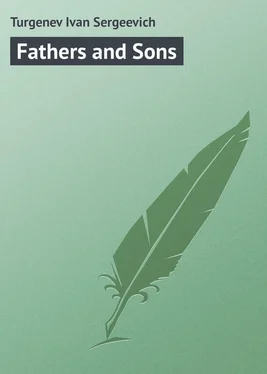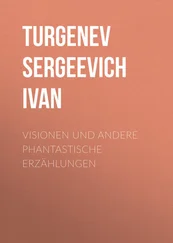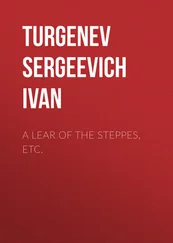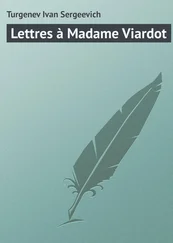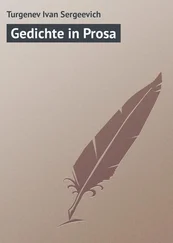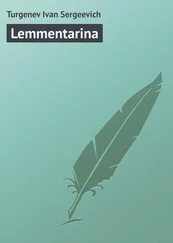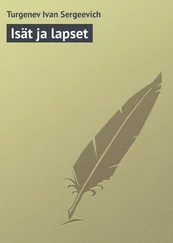Turgenev Ivan - Fathers and Sons
Здесь есть возможность читать онлайн «Turgenev Ivan - Fathers and Sons» — ознакомительный отрывок электронной книги совершенно бесплатно, а после прочтения отрывка купить полную версию. В некоторых случаях можно слушать аудио, скачать через торрент в формате fb2 и присутствует краткое содержание. ISBN: , Жанр: foreign_prose, на английском языке. Описание произведения, (предисловие) а так же отзывы посетителей доступны на портале библиотеки ЛибКат.
- Название:Fathers and Sons
- Автор:
- Жанр:
- Год:неизвестен
- ISBN:http://www.gutenberg.org/ebooks/47935
- Рейтинг книги:3 / 5. Голосов: 1
-
Избранное:Добавить в избранное
- Отзывы:
-
Ваша оценка:
- 60
- 1
- 2
- 3
- 4
- 5
Fathers and Sons: краткое содержание, описание и аннотация
Предлагаем к чтению аннотацию, описание, краткое содержание или предисловие (зависит от того, что написал сам автор книги «Fathers and Sons»). Если вы не нашли необходимую информацию о книге — напишите в комментариях, мы постараемся отыскать её.
Fathers and Sons — читать онлайн ознакомительный отрывок
Ниже представлен текст книги, разбитый по страницам. Система сохранения места последней прочитанной страницы, позволяет с удобством читать онлайн бесплатно книгу «Fathers and Sons», без необходимости каждый раз заново искать на чём Вы остановились. Поставьте закладку, и сможете в любой момент перейти на страницу, на которой закончили чтение.
Интервал:
Закладка:
"At least the savants of that part of the world have some energy in them," retorted Bazarov.
"Quite so. And your opinion of our Russian savants is – well, perhaps less flattering?"
"It is, with your leave."
"That constitutes a piece of laudable modesty on your part," Paul Petrovitch observed with a slight hitch of his figure and a toss of his head. "But how comes it about that Arkady has just told us that you recognise no authorities whatsoever? Do you not trust authorities?"
"Why should I? Is anything in the world trustworthy? Certainly, should I be told a fact, I agree with it, but that is all."
"Oh! Then the Germans confine themselves solely to facts?" Paul Petrovitch's face had now assumed an expression of detachment, as though he had suddenly become withdrawn to the ultimate heights of the empyrean.
"No, not all Germans," replied Bazarov with a passing yawn. Clearly he had no mind to continue the controversy. Meanwhile Paul Petrovitch glanced at Arkady as much as to say: "Admit that your friend has beautiful manners!"
"For my own part," he continued, ostentatiously, and with an effort, "I, a fallible mortal, do not favour the Germans. Of course, I am not including in that category the Russo -Germans, who, as we know, are birds of passage. Rather, it is the Germans of Germany proper whom I cannot abide. Once upon a time they used to produce men like Schiller and like – what's his name? – Goethe: for both of which authors my brother has a marked predilection. But now the German nation has become a nation solely of chemists and materialists."
"A good chemist is worth a score of your poets," remarked Bazarov.
"Quite so." Paul Petrovitch hitched his eyebrows a little, as though he had come near to falling asleep. "Er – I take it then that you decline to recognise art, but believe only in science?"
"I have told you that I believe in nothing at all. What after all, is science – that is to say, science in the mass? A science may exist, even as a trade or a profession may exist; but with regard to science in the mass, there is no such thing."
"Very good. And, with regard to such other postulates as usually are granted in human affairs, the attitude which you adopt is negative in the same degree?"
"What is this?" suddenly countered Bazarov. "Is it an examination in tenets?"
Paul Petrovitch turned pale, and Nikolai Petrovitch thought it time to intervene in the dispute.
"Nay, we will debate the subject later," he said. "And then, while recognising your views, good Evgenii Vasilitch, we will state our own. Individually speaking, I am delighted that you should be interested in the natural sciences. For instance, I am told that recently Liebig 9 9 Justus Freiherr von Liebig (1803-1873), the great German chemist – in particular, the founder of agricultural chemistry.
has made some surprising discoveries in the matter of the improvement of soils. Consequently you might be able to help me in my agricultural labours, and to give me much useful advice."
"Always I shall be at your service, Nikolai Petrovitch," replied Bazarov. "But what has Liebig to do with us? First the alphabet should be learnt before we try to read books. We have not even reached the letter A."
"You are a Nihilist – that is plain enough," reflected Nikolai Petrovitch; while aloud he added: "Yet allow me to seek your occasional assistance. Brother Paul, I believe it is time that we interviewed our steward."
Paul Petrovitch rose from his chair.
"Yes," he said, without looking at any one in particular, "it is indeed a terrible thing to have lived five years in the country, and to have stood remote from superior intellects! If one is ab origine a fool, one becomes so more than ever, seeing that, however much one may try not to forget what one has learnt, there will dawn upon one, sooner or later, the revelation that one's knowledge is all rubbish, that sensible men have ceased to engage in such futilities, and that one has lagged far behind the times. But, in such a case, what is one to do? Evidently the younger generation know more than we do."
And, slowly turning on his heel, he moved away as slowly, with Nikolai Petrovitch following in his wake.
"Does Paul Petrovitch always reside here?" asked Bazarov when the door had closed upon the pair.
"Yes, he does. But look here, Evgenii. You adopted too sharp a tone with my uncle. You have offended him."
"What? Am I to fawn upon these rustic aristocrats, even though their attitude is one purely of conceit and subservience to custom? If such be Paul Petrovitch's bent, he had better have continued his career in St. Petersburg. Never mind him, however. Do you know, I have found a splendid specimen of the water beetle dytiscus marginatus . Are you acquainted with it? I will show it you."
"Did I not promise to tell you his history?" observed Arkady musingly.
"Whose history? The water beetle's?"
"No; my uncle's. At least you will see from it that he is not the man you take him for, but a man who deserves pity rather than ridicule."
"I am not prepared to dispute it. But how come you to be so devoted to him?"
"Always one ought to be fair."
"The connection I do not see."
"Then listen."
And Arkady related the story to be found in the following chapter.
VII
"Like his brother, Paul Petrovitch Kirsanov received his early education at home, and entered the Imperial Corps of Pages. Distinguished from boyhood for his good looks, he had, in addition, a nature of the self-confident, quizzical, amusingly sarcastic type which never fails to please. As soon, therefore, as he had received his officer's commission, he began to go everywhere in society, to set the pace, to amuse himself, to play the rake, and to squander his money. Yet these things somehow consorted well with his personality, and women went nearly mad over him, while men called him 'Fate,' and secretly detested him. Meanwhile he rented a flat with his brother, for whom, in spite of their dissimilarity, he had a genuine affection. The dissimilarity in question lay, among other things, in the fact that, while Nikolai Petrovitch halted, had small, kindly, rather melancholy features and narrow black eyes, and was of a disposition prone to reading omnivorously, to bestirring himself but little, and to feeling nervous when attending social functions, Paul Petrovitch never spent a single evening at home, but was renowned for his physical dexterity and daring (he it was who made gymnastics the rage among the gilded youth of his day), and read, at most, five or six French novels. Indeed, by the time that he reached his twenty-eighth year Paul had risen to be a captain, and before him there seemed to lie a brilliant career; but everything suddenly underwent a change, as shall be related forthwith.
"Among the society of St. Petersburg of that period there was accustomed to appear, and to disappear, at irregular intervals a certain Princess R. whose memory survives to this day. Though wedded to a highly placed and very presentable (albeit slightly stupid) husband, she had no children, and spent her time between making unexpected visits abroad and unexpected returns to Russia. In short, she led a very curious life, and the world in general accounted her a coquette, in that she devoted herself to every sort of pleasure, and danced at balls until she could dance no more, and laughed and jested with young men whom she received before dinner in the half-light of a darkened drawing-room. Yet, strangely enough, as the night advanced she would fall to weeping and praying and wringing her hands, and, unable to rest, would pace her room until break of day, or sit huddled, pale and cold, over the Psalter. But no sooner would daylight have appeared than she would once more become a woman of the world, and drive, and laugh, and chatter, and fling herself upon anything which seemed to offer any sort of distraction. Also, her power to charm was extraordinary; for though no one could have called her a beauty (seeing that the one good feature of her face lay in her eyes – and even then it was not the small, grey eyes themselves which attracted, but the glance which they emitted), she had hair of the colour and weight of gold which reached to her knees. That glance! – it was a glance which could be careless to the point of daring or meditative to the point of melancholy; a glance so enigmatical that, even when her tongue was lisping fatuous nonsense, there gleamed in her aspect something intangible and out of the common. Finally, she dressed with exquisite taste.
Читать дальшеИнтервал:
Закладка:
Похожие книги на «Fathers and Sons»
Представляем Вашему вниманию похожие книги на «Fathers and Sons» списком для выбора. Мы отобрали схожую по названию и смыслу литературу в надежде предоставить читателям больше вариантов отыскать новые, интересные, ещё непрочитанные произведения.
Обсуждение, отзывы о книге «Fathers and Sons» и просто собственные мнения читателей. Оставьте ваши комментарии, напишите, что Вы думаете о произведении, его смысле или главных героях. Укажите что конкретно понравилось, а что нет, и почему Вы так считаете.
